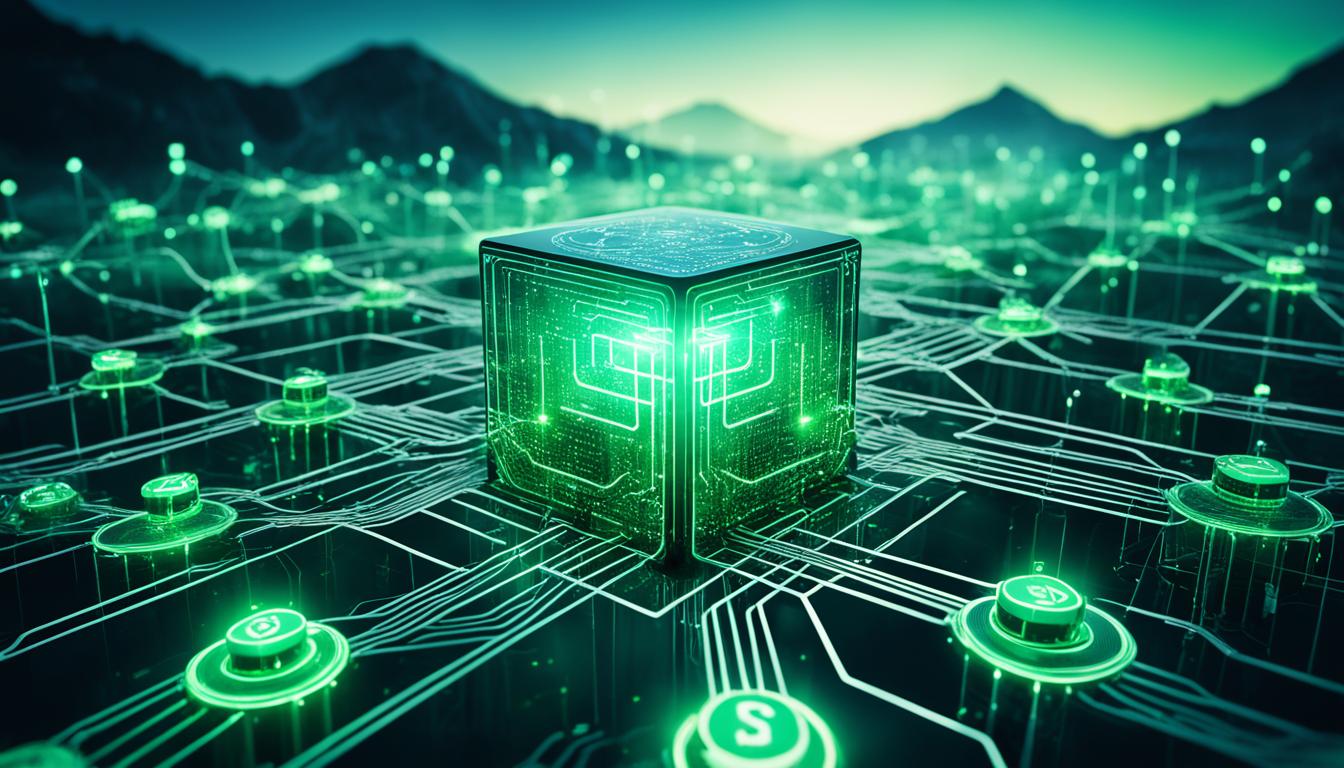Did you know that the convergence of quantum computing and blockchain technology has the potential to revolutionize the way we secure digital transactions? It’s true! Quantum computing, with its immense computational power, poses both opportunities and challenges for the security of blockchain networks.
- Quantum computing has the potential to disrupt current cryptographic algorithms used in blockchain technology, posing a significant threat to digital transaction security.
- Researchers are actively exploring quantum-resistant blockchains, focusing on post-quantum cryptography and hybrid approaches to ensure security.
- The development of quantum-resistant blockchains faces challenges, such as slower transaction speeds and increased computational demands.
- Global collaboration among cryptographers, quantum scientists, and blockchain developers is crucial to prepare for the quantum computing era.
- Staying updated on advancements in quantum and cryptographic research is essential for businesses, governments, and individuals invested in blockchain technology.
The Rise of Quantum Computing and AI
Quantum computing is poised to revolutionize the world of technology, with its immense computational power derived from the principles of quantum physics. By utilizing quantum bits, or qubits, quantum computers can solve complex mathematical problems at an unprecedented speed, surpassing their classical counterparts. The emergence of quantum computing has significant implications for various fields, including the realm of cryptocurrency.
Quantum computing offers both advantages and drawbacks for the security of cryptocurrencies. On one hand, it has the potential to enhance the security of digital currencies by providing stronger encryption algorithms and faster transaction processing. This increased security can safeguard against threats such as hacking and fraudulent activities, bolstering the trust and reliability of cryptocurrencies.
Furthermore, quantum computing can optimize the efficiency of cryptocurrency mining operations, enabling faster and more efficient validation of transactions. This can result in improved transaction speeds and increased scalability for blockchain networks, enhancing the user experience.
However, the rise of quantum computing also poses a significant threat to the current encryption algorithms used in cryptocurrencies. The computational power of quantum computers can potentially compromise the integrity of digital currencies, rendering them vulnerable to attacks. This raises concerns among regulators and policymakers regarding the future of cryptocurrency in a quantum computing era.
The integration of artificial intelligence (AI) in cryptocurrency platforms further amplifies the potential impact of quantum computing. AI can enhance security measures by continuously monitoring and analyzing transactional data to detect and prevent fraudulent activities. It can also optimize trading strategies by leveraging advanced algorithms and predictive analytics, maximizing returns for cryptocurrency investors.
Additionally, AI-driven personalized user experiences can enhance the usability and accessibility of cryptocurrencies, attracting a broader user base. However, the increased reliance on AI can also introduce new challenges, including potential market volatility and privacy concerns associated with data collection and analysis.
Striking a balance between leveraging the potential of quantum computing and AI while addressing the inherent vulnerabilities and drawbacks is crucial for the future of cryptocurrency. Robust cryptographic techniques, such as post-quantum cryptography, are being developed to ensure the security and longevity of digital currencies in the face of quantum threats.
Table: Comparison of Quantum Computing and AI in the Context of Cryptocurrency
| Aspect | Quantum Computing | AI |
|---|---|---|
| Security | Provides stronger encryption algorithms Faster transaction processing | Enhances security measures Continuously monitors for fraudulent activities |
| Efficiency | Optimizes cryptocurrency mining operations Improves transaction speeds | Streamlines trading strategies Maximizes returns for investors |
| Threats | Potential compromise of encryption algorithms Raises regulatory concerns | Potential market volatility Privacy concerns |
The future of cryptocurrency hinges on adapting to the evolving landscape shaped by quantum computing and AI. Continued research, collaboration, and innovation across the realms of quantum technology, cryptography, and artificial intelligence will be instrumental in securing the future of digital currencies.
The Intersection of Quantum AI and Blockchain
The convergence of quantum AI and blockchain technology offers a transformative synergy that can revolutionize decentralized systems and enhance the security of blockchain networks. By combining the computational power of quantum computing with the intelligent capabilities of artificial intelligence, quantum AI enables expedited transaction validation and verification processes, resulting in faster and more efficient blockchain operations.
Quantum AI also enables streamlined data analysis, extraction of valuable insights, and pattern recognition, leading to enhanced fraud detection mechanisms in sectors such as finance and healthcare. With optimized resource allocation and improved patient care and medical research, the integration of quantum AI and blockchain offers substantial advancements in these critical industries.
Crucially, the integration of quantum-resistant cryptography further strengthens the security of blockchain networks, safeguarding them against potential threats. With enhanced consensus protocols, these networks become more scalable and energy-efficient, paving the way for faster transactions, heightened security, and advanced privacy.
Ongoing research in quantum AI and blockchain signals promising advancements, holding the potential for widespread adoption of blockchain technology across various sectors. As businesses and industries explore the benefits of this convergence, we can anticipate transformative changes that optimize efficiency, empower secure decentralized systems, and drive future innovation.
FAQ
What is the potential threat of quantum computing to blockchain security?
How are researchers addressing the threat of quantum computing to blockchain security?
What challenges are associated with the development of quantum-resistant blockchains?
Why is global collaboration important in addressing the challenges of quantum-resistant blockchains?
What is the potential impact of quantum computing on the world of cryptocurrency?
How can the integration of AI in cryptocurrency platforms enhance security measures?
What are the potential drawbacks of integrating AI in cryptocurrency platforms?
How does the convergence of quantum AI and blockchain technology optimize the efficiency of blockchain?
How can the integration of quantum AI and blockchain revolutionize sectors like finance and healthcare?
What are the transformative advancements that can result from the integration of quantum AI and blockchain?
What do ongoing research efforts in quantum AI and blockchain indicate?
Source Links
- https://hyscaler.com/insights/the-impact-of-quantum-ai-on-blockchain/
- https://www.linkedin.com/pulse/quantum-computing-future-blockchain-security-liveplexplatform-0fahc?trk=article-ssr-frontend-pulse_more-articles_related-content-card
- https://medium.com/@mediation/quantum-computing-and-ai-transforming-the-future-of-cryptocurrency-b697092c5dc8

Leave a Reply